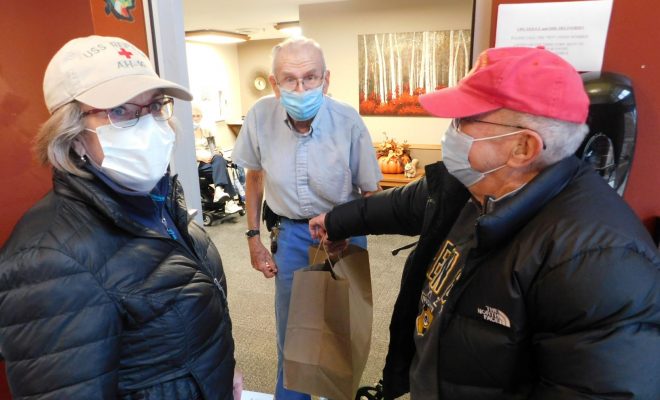Understanding post-traumatic stress disorder
FOR THE WAUSAU TIMES
WAUSAU, Wis. – Terrifying events leave a mark. Whether it’s combat, a natural disaster, a bad car accident, an abusive relationship or something else, people often feel the effects, known as post-traumatic stress disorder (PTSD), long after the danger has passed.
June is recognized as PTSD Month and June 27 is National PTSD Awareness Day. It’s an opportunity to shed light on the challenges faced by individuals living with PTSD and to promote empathy, support, and education about the condition, as well as to reduce the stigma associated with mental health issues.
“When someone has experienced or witnessed a stressful or life-threatening event, the fear associated with it may be hard to shake. If it intensifies and starts to interfere with everyday life, it could be PTSD,” says Carrie Shimkus, LPC, Certified Clinical Trauma Professional at Aspirus Koller Behavioral Health Clinic – Rhinelander. “Tell someone – your doctor or a close friend – if you’re having thoughts, feelings or behaviors that are unusual for you. You’re not alone, and talking about it is the first step in taking charge and stopping the fear from ruling your life.”
Four categories of symptoms
Post-traumatic stress disorder (PTSD) often appears within three months after the trauma, but it can occur later. There are four categories of symptoms, according to the American Psychiatric Association (APA):
Intrusive symptoms. People with PTSD may have vivid memories of the event without warning. These memories are so strong that they take over the person’s attention. This is usually called a flashback.
Severe flashbacks may cause the person to enter a dreamlike state, where the person acts as though the event is happening again.
Avoidance. The person may avoid situations that remind him or her of the trauma. He or she may pull away from friends and family, and may feel numb and incapable of feeling or expressing emotion.
Negative thoughts and feelings. People with PTSD may have ongoing distorted beliefs about themselves or others. Feelings of fear, anger, guilt and shame are possible. And people may lose interest in taking part in activities or being around others.
Hyperarousal and reactivity. PTSD can also cause the person to feel constantly threatened. He or she may become irritable or have trouble concentrating or sleeping. Panic attacks and reckless or self-destructive behavior are also possible.
PTSD can cause other problems such as alcohol or drug abuse, poor self-control and an increased risk of suicide.
Not everyone who experiences something traumatic has PTSD. Some people recover from trauma with the help of family and friends. However, if symptoms last more than a month, treatment may be needed.
Getting help
Behavior therapy is usually effective in treating this disorder. A therapist can use a variety of treatments, including relaxation therapy and desensitization, where the person is exposed to something that reminds him or her of the event and then learns to cope with it.
PTSD can be aggravated by the person’s view of the world compared to the reality that they witnessed during the event. Helping the person look at their values and how those values may have been violated during the trauma may help to resolve internal conflicts. Peer-counseling groups are also effective, as the person may have a chance to hear how others reacted and felt in the same situation.
Sometimes, medications such as antidepressants help the person to participate in these treatments more fully.
Most of the time, these treatments take place outside of the hospital. But if the person becomes dangerous, treatment in a hospital may be recommended.
If you are struggling to cope, or the symptoms of PTSD begin to interfere with your everyday life, it may be time to talk to a health care professional. Find an Aspirus provider at aspirus.org / find-a-provider.




